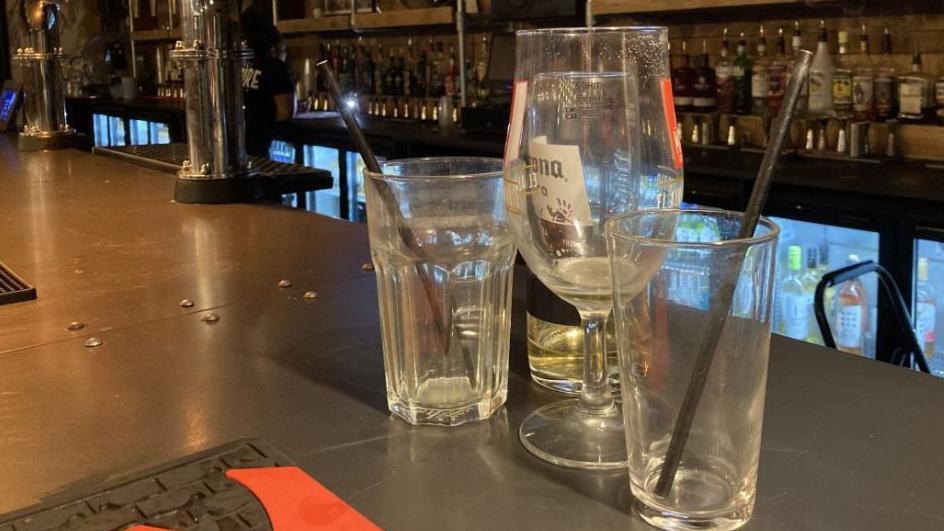Spiking to be made specific offence in King's Speech

- Published
The government is set to introduce a new law to make spiking a specific criminal offence in this week's King's Speech.
It is expected to be included in more than 35 bills in the programme announced on Wednesday.
Spiking is already a crime, covered by other pieces of legislation including the 1861 Offences against the Person Act.
But Labour's manifesto, alongside the Conservatives', said creating a new, specific offence would help police better respond to incidents.
More news on spiking
'My drink was spiked - now I have a brain injury'
- Published13 May 2024
Out on Soho police patrol amid 13% rise in spikings
- Published13 May 2024
Spiking is a plague on nightlife - Nightclub boss
- Published20 March 2024
Spiking is the action of putting a drug into someone's drink, or into their body through another method, without their consent.
Police in England and Wales received, external 6,732 reports of spiking, including needle spiking, in the year ending April 2023.
The Met police said reports of drink spiking increased 13% in July to December 2023 compared with the same period in 2022 – after a quadrupling in recent years.
The force received 1,383 allegations of spiking in 2023 and the majority of cases happen in public places, particularly bars and nightclubs.
But the National Police Chief’s Council has said that spiking is underreported and that cases can be hard to investigate because drugs pass through the system quickly.
The King’s Speech is the official opening of the new Parliament, when the monarch reads out the government’s plans for the parliamentary term.
Prime Minister Sir Keir Starmer has said the programme, which is expected to focus on economic growth, will show urgency and that “there is no time to waste”.
Sir Keir has said the government “is serious about delivering the stability that is going to turbo charge growth”.
But as well as economic measures, it is a chance for the new government to set out its key priorities in other areas.
The programme is also expected to bring back legislation to introduce Martyn's Law, named after Manchester Bombing victim Martyn Hett.
The proposed law, which had been promised by Rishi Sunak, would require venues and local authorities to have preventative plans to deal with terror attacks.
Plans were introduced in the last Parliament but did not pass before it was wound up before the election, which prompted Martyn's mother, Figen Murray, to say she felt "let down" by Mr Sunak.
The spiking law will apply in England and Wales. Any further measures in Scotland and Northern Ireland will be for devolved politicians.
Correction 25 July 2024: This article inaccurately mentioned Wales twice when reporting that the spiking law would apply in England and Wales with any further measures for Scotland and Wales being for devolved politicians. The second reference to Wales has been replaced with Northern Ireland.